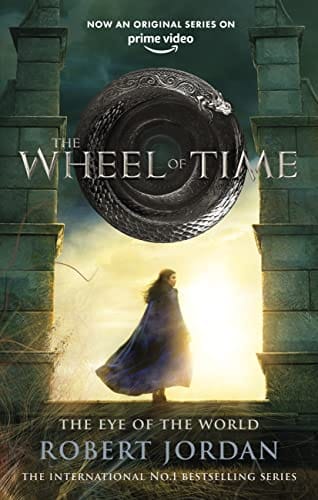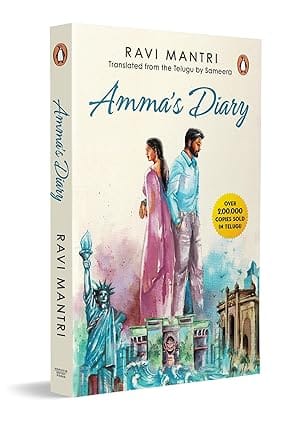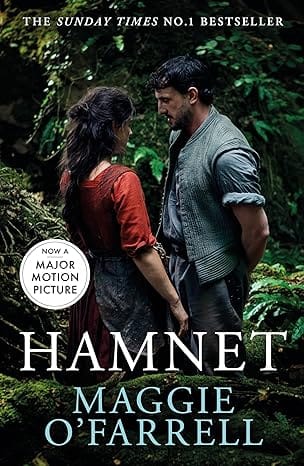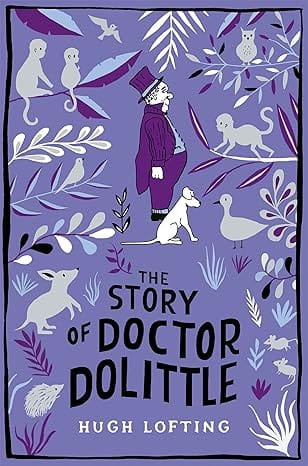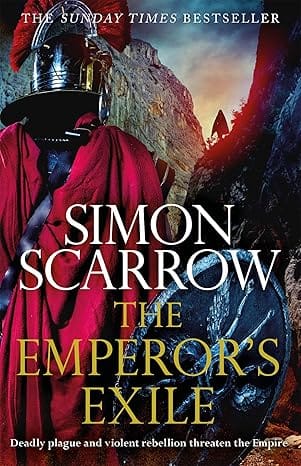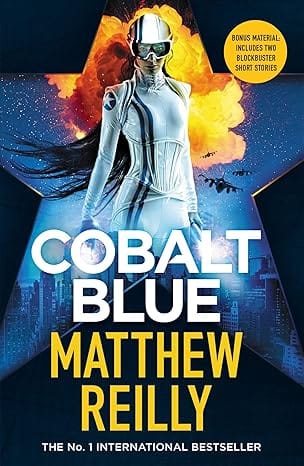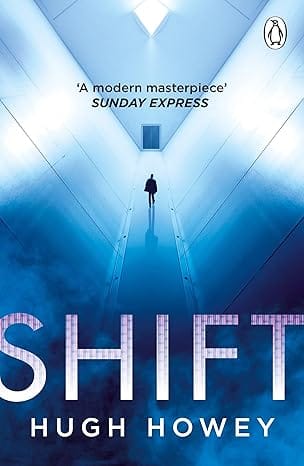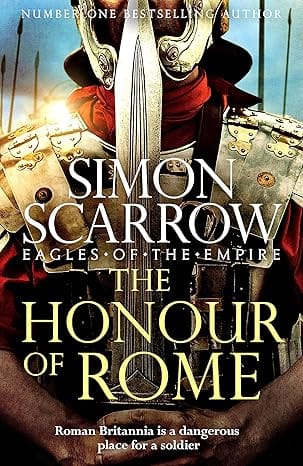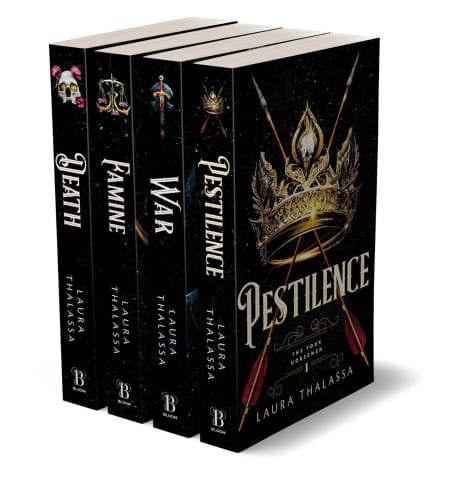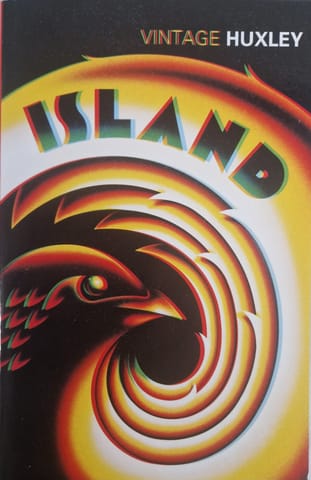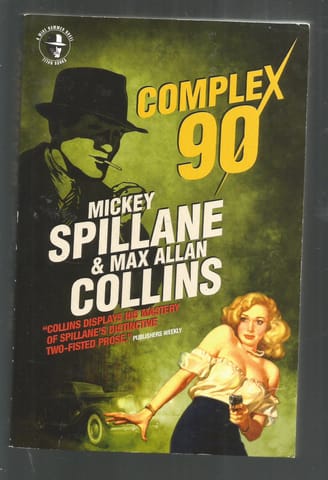- Non-ficton
- Non-ficton
- Contemporary Fiction
- Contemporary Fiction
- Children
- Children
- Comics & Graphic Novels
- Comics & Graphic Novels
- Non-Fiction
- Non-Fiction
- Fiction
- Fiction
NOW A MAJOR TV SERIES ON PRIME VIDEO
The first book in the No. 1 international bestselling Wheel of Time saga that inspired the TV series.
When she arrives in a small village in the Two Rivers, Moiraine discovers three young men, each of whom might be the long-awaited and reviled Chosen One, the Dragon Reborn. But she is not the only stranger new to the village, nor the only one searching. In a race against time and the agents of the Shadow, she must guide her charges through lands of myth and legend, toward allies both new and old, and into the footsteps of prophecy.
The Wheel of Time turns, and an epic adventure begins.
'EPIC IN EVERY SENSE' Sunday Times
'WITH THE WHEEL OF TIME, JORDAN HAS COME TO DOMINATE THE WORLD THAT TOLKIEN BEGAN TO REVEAL' New York Times
'[THE] AMBITIOUS WHEEL OF TIME SERIES HELPED REDEFINE THE GENRE' George R. R. Martin
'A FANTASY PHENOMENON' SFX
The Wheel of Time series:
Book 1: The Eye of the World
Book 2: The Great Hunt
Book 3: The Dragon Reborn
Book 4: The Shadow Rising
Book 5: The Fires of Heaven
Book 6: Lord of Chaos
Book 7: A Crown of Swords
Book 8: The Path of Daggers
Book 9: Winter's Heart
Book 10: Crossroads of Twilight
Book 11: Knife of Dreams
Book 12: The Gathering Storm
Book 13: Towers of Midnight
Book 14: A Memory of Light
Prequel: New Spring
Look out for the companion book: The World of Robert Jordan's The Wheel of Time
About the Author
Robert Jordan was born in 1948 in Charleston, South Carolina. He taught himself to read when he was four with the incidental aid of a twelve-years-older brother, and was tackling Mark Twain and Jules Verne by five. He is a graduate of The Citadel, the Military College of South Carolina, with a degree in physics. He served two tours in Vietnam with the U.S. Army; among his decorations are the Distinguished Flying Cross with bronze oak leaf cluster, the Bronze Star with "V" and bronze oak leaf cluster, and two Vietnamese Gallantry Crosses with palm. A history buff, he has also written dance and theater criticism and enjoyed the outdoor sports of hunting, fishing, and sailing, and the indoor sports of poker, chess, pool, and pipe collecting.
Robert Jordan began writing in 1977 and went on to write The Wheel of Time®, one of the most important and best selling series in the history of fantasy publishing with over 14 million copies sold in North America, and countless more sold abroad.
Robert Jordan died on September 16, 2007, after a courageous battle with the rare blood disease amyloidosis.
Kate Reading is the recipient of multiple AudioFile Earphones Awards and has been named by AudioFilemagazine as a "Voice of the Century," as well as the Best Voice in Science Fiction & Fantasy in 2008 and 2009. Her audiobook credits include reading for such authors as Jane Austen, Robert Jordan, Edith Wharton, and Sophie Kinsella. She has performed at numerous theaters in Washington D.C. and received a Helen Hayes Award for her performance in Aunt Dan and Lemon.
Michael Kramer has narrated over 100 audiobooks for many bestselling authors. He read all of Robert Jordan's epic Wheel of Time fantasy-adventure series as well as Brandon Sanderson's The Stormlight Archiveseries. He received AudioFile magazine's Earphones Award for the Kent Family series by John Jakes and for Alan Fulsom's The Day After Tomorrow. Known for his "spot-on character portraits and accents, and his resonant, well-tempered voice" (AudioFile), his work includes recording books for the Library of Congress's Talking Books program for the blind and physically handicapped.
--This text refers to the audioCD edition.Book Description
From AudioFile
From the Back Cover
The Wheel of Time turns and Ages come and go, leaving memories that become legend. Legend fades to myth, and even myth is long forgotten when the Age that gave it birth returns again. In the Third Age, an Age of Prophecy, the World and Time themselves hang in the balance. What was, what will be, and what is, may yet fall under the Shadow.
"Jordan is able to take ... familiar elements and make them his own, in a powerful novel of wide and complex scope. Open religious and political conflicts add a gritty realism, while the cities and courts provide plenty of drama and splendor. Women have a stronger role than in Tolkien.... Each character in this large cast remains distinct.... Their adventures are varied, and exciting.... The Eye of the World stands alone as a fantasy epic."--Locus
"Robert Jordan has created a fantasy world as tangible and credible as history. He has a fine eye for detail and a vivid sense of drama."--Morgan Llewelyn
"Robert Jordan's The Eye of the World proves that there's still plenty of life in the ancient tradition of epic fantasy. Jordan has a powerful vision of good and evil-- but what strikes me as most pleasurable about The Eye of the World is all the fascinating people moving through a rich and interesting world."--Orson Scott Card
"Jordan's world is rich in detail and his plot is rich in incident. Impressive work, and highly recommended."--ALA Booklist
--This text refers to the mass_market edition.Review
“The Eye of the World is the best of its genre.” – The Ottawa Citizen
“A splendid tale of heroic fantasy, vast in scope, colorful in detail, and convincing in its presentation of human character and personality.” – L. Sprague de Camp
“This richly detailed fantasy presents fully realized, complex adventure. Recommended.”- Library Journal
“This one is as solid as a steel blade and glowing with the true magic. Robert Jordan deserves congratulations.” – Fred Saberhagen
“One hell of a story. [It] kept me up past my bedtime for three nights running- and it’s been a long time since a novel’s done that.” – Baird Searles, Asimov’s Science Fiction
“A future collector’s item. Jordan has brought out a completely new allegory in a fantasy concept that goes even beyond this massive story, working with an artist’s eye and the sense of responsibility of a serious historian.” – Gordon R. Dickson
“Classic oppositions are brought into play: initiates versus innocents, good versus evil, the spiritual power of women versus that of men. The travelers themselves are full of subtleties and shadows-ordinary villagers who, thrust into cosmic conflict, are unable to abandon their simple human desires and fears.
“This intricate allegorical fantasy recalls the works of Tolkien because of its intensity and warmth.” – Publisher’s Weekly
“Robert Jordan has come to dominate the world Tolkien began to reveal.” – The New York Times
“This has magic and pacing and detail and human involvement, with a certain subtlety of a presentation and a grand central vision. Robert Jordan… is a lot of writer!” – Piers Anthony
“An exciting story; the reader is drawn in early and kept there until the last page. There is adventure and mystery and dark things that move in the night-- a combination of Robin Hood and Stephen King that is hard to resist… Jordan makes the reader care about these characters as though they were old friends; so much so that the reader will put down the book regretting the wait for the next title in the series.” – Milwaukee Journal Sentinel
“A classic fantasy tale of the struggle between light and darkness, good and evil, death and life. Goodness, life, and light are always in retreat, always about to be defeated, but never quite! Don’t miss it!” – Andrew M. Greeley
“Certainly a title I want to add to my permanent collection, and I shall be eagerly awaiting the sequel, which is promised at the end.” – Andre Norton
--This text refers to the mass_market edition.Excerpt. © Reprinted by permission. All rights reserved.
CHAPTER 1
An Empty Road
The Wheel of Time turns, and Ages come and pass, leaving memories that become legend. Legend fades to myth, and even myth is long forgotten when the Age that gave it birth comes again. In one Age, called the Third Age by some, an Age yet to come, an Age long past, a wind rose in the Mountains of Mist. The wind was not the beginning. There are neither beginnings nor endings to the turning of the Wheel of Time. But it was a beginning.
Born below the ever cloud-capped peaks that gave the mountains their name, the wind blew east, out across the Sand Hills, once the shore of a great ocean, before the Breaking of the World. Down it flailed into the Two Rivers, into the tangled forest called the Westwood, and beat at two men walking with a cart and horse down the rock-strewn track called the Quarry Road. For all that spring should have come a good month since, the wind carried an icy chill as if it would rather bear snow.
Gusts plastered Rand al’Thor’s cloak to his back, whipped the earthcolored wool around his legs, then streamed it out behind him. He wished his coat were heavier, or that he had worn an extra shirt. Half the time when he tried to tug the cloak back around him it caught on the quiver swinging at his hip. Trying to hold the cloak one-handed did not do much good anyway; he had his bow in the other, an arrow nocked and ready to draw.
As a particularly strong blast tugged the cloak out of his hand, he glanced at his father over the back of the shaggy brown mare. He felt a little foolish about wanting to reassure himself that Tarn was still there, but it was that kind of day. The wind howled when it rose, but aside from that, quiet lay heavy on the land. The soft creak of the axle sounded loud by comparison. No birds sang in the forest, no squirrels chittered from a branch. Not that he expected them, really; not this spring.
Only trees that kept leaf or needle through the winter had any green about them. Snarls of last year’s bramble spread brown webs over stone outcrops under the trees. Nettles numbered most among the few weeds; the rest were the sorts with sharp burrs or thorns, or stinkweed, which left a rank smell on the unwary boot that crushed it. Scattered white patches of snow still dotted the ground where tight clumps of trees kept deep shade. Where sunlight did reach, it held neither strength nor warmth. The pale sun sat above the trees to the east, but its light was crisply dark, as if mixed with shadow. It was an awkward morning, made for unpleasant thoughts.
Without thinking he touched the nock of the arrow; it was ready to draw to his cheek in one smooth movement, the way Tarn had taught him. Winter had been bad enough on the farms, worse than even the oldest folk remembered, but it must have been harsher still in the mountains, if the number of wolves driven down into the Two Rivers was any guide. Wolves raided the sheep pens and chewed their way into barns to get the cattle and horses. Bears had been after the sheep, too, where a bear had not been seen in years. It was no longer safe to be out after dark. Men were the prey as often as sheep, and the sun did not always have to be down.
Tam was taking steady strides on the other side of Bela, using his spear as a walking staff, ignoring the wind that made his brown cloak flap like a banner. Now and again he touched the mare’s flank lightly, to remind her to keep moving. With his thick chest and broad face, he was a pillar of reality in that morning, like a stone in the middle of a drifting dream. His sun-roughened cheeks might be lined and his hair have only a sprinkling of black among the gray, but there was a solidness to him, as though a flood could wash around him without uprooting his feet. He stumped down the road now impassively. Wolves and bears were all very well, his manner said, things that any man who kept sheep must be aware of, but they had best not try to stop Tam al’Thor getting to Emond’s Field.
With a guilty start Rand returned to watching his side of the road, Tam’s matter-of-factness reminding him of his task. He was a head taller than his father, taller than anyone else in the district, and had little of Tam in him physically, except perhaps for a breadth of shoulder. Gray eyes and the reddish tinge to his hair came from his mother, so Tam said. She had been an outlander, and Rand remembered little of her aside from a smiling face, though he did put flowers on her grave every year, at Bel Tine, in the spring, and at Sunday, in the summer.
Two small casks of Tam’s apple brandy rested in the lurching cart, and eight larger barrels of apple cider, only slightly hard after a winter’s curing. Tam delivered the same every year to the Winespring Inn for use during Bel Tine, and he had declared that it would take more than wolves or a cold wind to stop him this spring. Even so they had not been to the village for weeks. Not even Tam traveled much these days. But Tam had given his word about the brandy and cider, even if he had waited to make delivery until the day before Festival. Keeping his word was important to Tam. Rand was just glad to get away from the farm, almost as glad as about the coming of Bel Tine.
As Rand watched his side of the road, the feeling grew in him that he was being watched. For a while he tried to shrug it off. Nothing moved or made a sound among the trees, except the wind. But the feeling not only persisted, it grew stronger. The hairs on his arms stirred; his skin prickled as if it itched on the inside.
He shifted his bow irritably to rub at his arms, and told himself to stop letting fancies take him. There was nothing in the woods on his side of the road, and Tam would have spoken if there had been anything on the other. He glanced over his shoulder…and blinked. Not more than twenty spans back down the road a cloaked figure on horseback followed them, horse and rider alike black, dull and ungleaming.
It was more habit than anything else that kept him walking backward alongside the cart even while he looked.
The rider’s cloak covered him to his boot tops, the cowl tugged well forward so no part of him showed. Vaguely Rand thought there was something odd about the horseman, but it was the shadowed opening of the hood that fascinated him. He could see only the vaguest outlines of a face, but he had the feeling he was looking right into the rider’s eyes. And he could not look away. Queasiness settled in his stomach. There was only shadow to see in the hood, but he felt hatred as sharply as if he could see a snarling face, hatred for everything that lived. Hatred for him most of all, for him above all things.
Abruptly a stone caught his heel and he stumbled, breaking his eyes away from the dark horseman. His bow dropped to the road, and only an outthrust hand grabbing Bela’s harness saved him from falling flat on his back. With a startled snort the mare stopped, twisting her head to see what had caught her.
Tam frowned over Bela’s back at him. “Are you all right, lad?”
“A rider,” Rand said breathlessly, pulling himself upright. “A stranger, following us.”
“Where?” The older man lifted his broad-bladed spear and peered back warily.
“There, down the.…” Rand’s words trailed off as he turned to point. The road behind was empty. Disbelieving, he stared into the forest on both sides of the road. Bare-branched trees offered no hiding place, but there was not a glimmer of horse or horseman. He met his father’s questioning gaze. “He was there. A man in a black cloak, on a black horse.”
“I wouldn’t doubt your word, lad, but where has he gone?”
“I don’t know. But he was there.,” He snatched up the fallen bow and arrow, hastily checked the fletching before renocking, and half drew before letting the bowstring relax. There was nothing to aim at. “He was.”
Tam shook his grizzled head. “If you say so, lad. Come on, then. A horse leaves hoofprints, even on this ground.,” He started toward the rear of the cart, his cloak whipping in the wind. “If we find them, we’ll know for a fact he was there. If not…well, these are days to make a man think he’s seeing things.”
Abruptly Rand realized what had been odd about the horseman, aside from his being there at all. The wind that beat at Tam and him had not so much as shifted a fold of that black cloak. His mouth was suddenly dry. He must have imagined it. His father was right; this was a morning to prickle a man’s imagination. But he did not believe it. Only, how did he tell his father that the man who had apparently vanished into thin air wore a cloak the wind did not touch?
With a worried frown he peered into the woods around them; it looked different than it ever had before. Almost since he was old enough to walk, he had run loose in the forest. The ponds and streams of the Waterwood, beyond the last farms east of Emond’s Field, were where he had learned to swim. He had explored into the Sand Hills—which many in the Two Rivers said was bad luck—and once he had even gone to the very foot of the Mountains of Mist, him and his closest friends, Mat Cauthon and Perrin Aybara. That was a lot further afield than most people in Emond’s Field ever went; to them a journey to the next village, up to Watch Hill or down to Deven Ride, was a big event. Nowhere in all of that had he found a place that made him afraid. Today, though, the Westwood was not the place he remembered. A man who could disappear so suddenly could reappear just as suddenly, maybe even right beside them.
“No, father, there’s no need.” When Tam stopped in surprise, Rand covered his flush by tugging at the hood of his cloak. “You’re probably right. No point looking for what isn’t there, not when we can use the time getting on to the village and out of this wind.”
“I could do with a pipe,” Tarn said slowly, “and a mug of ale where it’s warm.,” Abruptly he gave a broad grin. “And I expect you’re eager to see Egwene.”
Rand managed a weak smile. Of all things he might want to think about right then, the Mayor’s daughter was far down the list. He did not need any more confusion. For the past year she had been making him increasingly jittery whenever they were together. Worse, she did not even seem to be aware of it. No, he certainly did not want to add Egwene to his thoughts.
He was hoping his father had not noticed he was afraid when Tarn said, “Remember the flame, lad, and the void.”
It was an odd thing Tarn had taught him. Concentrate on a single flame and feed all your passions into it—fear, hate, anger—until your mind became empty. Become one with the void, Tarn said, and you could do anything. Nobody else in Emond’s Field talked that way. But Tarn won the archery competition at Bel Tine every year with his flame and his void. Rand thought he might have a chance at placing this year himself, if he could manage to hold onto the void. For Tam to bring it up now meant he had noticed, but he said nothing more about it.
Tam clucked Bela into motion once more, and they resumed their journey, the older man striding along as if nothing untoward had happened and nothing untoward could. Rand wished he could imitate him. He tried forming the emptiness in his mind, but it kept slipping away into images of the black-cloaked horseman.
He wanted to believe that Tam was right, that the rider had just been his imagination, but he could remember that feeling of hatred too well. There had been someone. And that someone had meant him harm. He did not stop looking back until the high-peaked, thatched roofs of Edmond’s Field surrounded him.
The village lay close onto the Westwood, the forest gradually thinning until the last few trees stood actually among the stout frame houses. The land sloped gently down to the east. Though not without patches of woods, farms and hedge-bordered fields and pastures quilted the land beyond the village all the way to the Waterwood and its tangle of streams and ponds. The land to the west was just as fertile, and the pastures there lush in most years, but only a handful of farms could be found in the Westwood. Even those few dwindled to none miles short of the Sand Hills, not to mention the Mountains of Mist, which rose above the Westwood treetops, distant but in plain sight from Emond’s Field. Some said the land was too rocky, as if there were not rocks everywhere in the Two Rivers, and others said it was hard-luck land. A few muttered that there was no point getting any closer to the mountains than needs be. Whatever the reasons, only the hardiest men farmed in the Westwood.
Small children and dogs dodged around the cart in whooping swarms once it passed the first row of houses. Bela plodded on patiently, ignoring the yelling youngsters who tumbled under her nose, playing tag and rolling hoops. In the last months there had been little of play or laughter from the children; even when the weather had slackened enough to let children out, fear of wolves kept them in. It seemed the approach of Bel Tine had taught them how to play again.
Festival had affected the adults as well. Broad shutters were thrown back, and in almost every house the goodwife stood in a window, apron tied about her and long-braided hair done up in a kerchief, shaking sheets or hanging mattresses over the windowsills. Whether or not leaves had appeared on the trees, no woman would let Bel Tine come before her spring cleaning was done. In every yard rugs hung from stretched lines, and children who had not been quick enough to run free in the streets instead vented their frustration on the carpets with wicker beaters. On roof after roof the goodman of the house clambered about, checking the thatch to see if the winter’s damage meant calling on old Cenn Buie, the thatcher.
Several times Tam paused to engage one man or another in brief conversation. Since he and Rand had not been off the farm for weeks, everyone wanted to catch up on how things were out that way. Few Westwood men had been in. Tam spoke of damage from winter storms, each one worse than the one before, and stillborn lambs, of brown fields where crops should be sprouting and pastures greening, of ravens flocking in where songbirds had come in years before. Grim talk, with preparations for Bel Tine going on all around them, and much shaking of heads. It was the same on all sides.
Most of the men rolled their shoulders and said, “Well, we’ll survive, the Light willing.” Some grinned and added, “And if the Light doesn’t will, we’ll still survive.”
That was the way of most Two Rivers people. People who had to watch the hail beat their crops or the wolves take their lambs, and start over, no matter how many years it happened, did not give up easily. Most of those who did were long since gone.
Tam would not have stopped for Wit Congar if the man had not come out into the street so they had to halt or let Bela run over him. The Congars—and the Coplins; the two families were so intermarried no one really knew where one family let off and the other began—were known from Watch Hill to Deven Ride, and maybe as far as Taren Ferry, as complainers and troublemakers.
“I have to get this to Bran al’Vere, Wit,” Tam said, nodding to the barrels in the cart, but the scrawny man held his ground with a sour expression on his face. He had been sprawled on his front steps, not up on his roof, though the thatch looked as if it badly needed Master Buie’s attention. He never seemed ready to start over, or to finish what he started the first time. Most of the Coplins and Congars were like that, those who were not worse.
“What are we going to do about Nynaeve, al’Thor?” Congar demanded. “We can’t have a Wisdom like that for Emond’s Field.”
Tam sighed heavily. “It’s not our place, Wit. The Wisdom is women’s business.”
“Well, we’d better do something, al’Thor. She said we’d have a mild winter. And a good harvest. Now you ask her what she hears on the wind, and she just scowls at you and stomps off.”
“If you asked her the way you usually do, Wit,” Tam said patiently,
“you’re lucky she didn’t thump you with that stick she carries. Now if you
don’t mind, this brandy—”
“Nynaeve al’Meara is just too young to be Wisdom, al’Thor. If the Women’s Circle won’t do something, then the Village Council has to.”
“What business of yours is the Wisdom, Wit Congar?” roared a woman’s voice. Wit flinched as his wife marched out of the house. Daise Congar was twice as wide as Wit, a hard-faced woman without an ounce of fat on her. She glared at him with her fists on her hips. “You try meddling in Women’s Circle business, and see how you like eating your own cooking. Which you won’t do in my kitchen. And washing your own clothes and making your own bed. Which won’t be under my roof.”
“But, Daise,” Wit whined, “I was just…”
“If you’ll pardon me, Daise,” Tam said. “Wit. The Light shine on you both.” He got Bela moving again, leading her around the scrawny fellow. Daise was concentrating on her husband now, but any minute she could realize whom it was Wit had been talking to.
That was why they had not accepted any of the invitations to stop for a bite to eat or something hot to drink. When they saw Tam, the goodwives of Emond’s Field went on point like hounds spotting a rabbit. There was not a one of them who did not know just the perfect wife for a widower with a good farm, even if it was in the Westwood.
Rand stepped along just as quickly as Tam, perhaps even more so. He was sometimes cornered when Tam was not around, with no way to escape outside of rudeness. Herded onto a stool by the kitchen fire, he would be fed pastries or honeycakes or meatpies. And always the goodwife’s eyes weighed and measured him as neatly as any merchant’s scales and tapes while she told him that what he was eating was not nearly so good as her widowed sister’s cooking, or her next-to-eldest cousin’s. Tarn was certainly not getting any younger, she would say. It was good that he had loved his wife so—it boded well for the next woman in his life—but he had mourned long enough. Tam needed a good woman. It was a simple fact, she would say, or something very close, that a man just could not do without a woman to take care of him and keep him out of trouble. Worst of all were those who paused thoughtfully at about that point, then asked with elaborate casualness exactly how old he was now.
Like most Two Rivers folk, Rand had a strong stubborn streak. Outsiders sometimes said it was the prime trait of people in the Two Rivers, that they could give mules lessons and teach stones. The goodwives were fine and kindly women for the most part, but he hated being pushed into anything, and they made him feel as if he were being prodded with sticks. So he walked fast, and wished Tam would hurry Bela along.
Soon the street opened onto the Green, a broad expanse in the middle of the village. Usually covered with thick grass, the Green this spring showed only a few fresh patches among the yellowish brown of dead grass and the black of bare earth. A double handful of geese waddled about, beadily eyeing the ground but not finding anything worth pecking, and someone had tethered a milkcow to crop the sparse growth.
Toward the west end of the Green, the Winespring itself gushed out of a low stone outcrop in a flow that never failed, a flow strong enough to knock a man down and sweet enough to justify its name a dozen times over. From the spring the rapidly widening Winespring Water ran swiftly off to the east, willows dotting its banks all the way to Master Thane’s mill and beyond, until it split into dozens of streams in the swampy depths of the Waterwood. Two low, railed footbridges crossed the clear stream at the Green, and one bridge, wider than the others and stout enough to bear wag
The Eye Of The World Book 1 Of The Wheel Of Time Now A Major Tv Series
SIZE GUIDE
- ISBN: 9780356516851
- Author: Robert Jordan
- Publisher: Orbit Books
- Pages: 753
- Format: Paperback
Book Description
NOW A MAJOR TV SERIES ON PRIME VIDEO
The first book in the No. 1 international bestselling Wheel of Time saga that inspired the TV series.
When she arrives in a small village in the Two Rivers, Moiraine discovers three young men, each of whom might be the long-awaited and reviled Chosen One, the Dragon Reborn. But she is not the only stranger new to the village, nor the only one searching. In a race against time and the agents of the Shadow, she must guide her charges through lands of myth and legend, toward allies both new and old, and into the footsteps of prophecy.
The Wheel of Time turns, and an epic adventure begins.
'EPIC IN EVERY SENSE' Sunday Times
'WITH THE WHEEL OF TIME, JORDAN HAS COME TO DOMINATE THE WORLD THAT TOLKIEN BEGAN TO REVEAL' New York Times
'[THE] AMBITIOUS WHEEL OF TIME SERIES HELPED REDEFINE THE GENRE' George R. R. Martin
'A FANTASY PHENOMENON' SFX
The Wheel of Time series:
Book 1: The Eye of the World
Book 2: The Great Hunt
Book 3: The Dragon Reborn
Book 4: The Shadow Rising
Book 5: The Fires of Heaven
Book 6: Lord of Chaos
Book 7: A Crown of Swords
Book 8: The Path of Daggers
Book 9: Winter's Heart
Book 10: Crossroads of Twilight
Book 11: Knife of Dreams
Book 12: The Gathering Storm
Book 13: Towers of Midnight
Book 14: A Memory of Light
Prequel: New Spring
Look out for the companion book: The World of Robert Jordan's The Wheel of Time
About the Author
Robert Jordan was born in 1948 in Charleston, South Carolina. He taught himself to read when he was four with the incidental aid of a twelve-years-older brother, and was tackling Mark Twain and Jules Verne by five. He is a graduate of The Citadel, the Military College of South Carolina, with a degree in physics. He served two tours in Vietnam with the U.S. Army; among his decorations are the Distinguished Flying Cross with bronze oak leaf cluster, the Bronze Star with "V" and bronze oak leaf cluster, and two Vietnamese Gallantry Crosses with palm. A history buff, he has also written dance and theater criticism and enjoyed the outdoor sports of hunting, fishing, and sailing, and the indoor sports of poker, chess, pool, and pipe collecting.
Robert Jordan began writing in 1977 and went on to write The Wheel of Time®, one of the most important and best selling series in the history of fantasy publishing with over 14 million copies sold in North America, and countless more sold abroad.
Robert Jordan died on September 16, 2007, after a courageous battle with the rare blood disease amyloidosis.
Kate Reading is the recipient of multiple AudioFile Earphones Awards and has been named by AudioFilemagazine as a "Voice of the Century," as well as the Best Voice in Science Fiction & Fantasy in 2008 and 2009. Her audiobook credits include reading for such authors as Jane Austen, Robert Jordan, Edith Wharton, and Sophie Kinsella. She has performed at numerous theaters in Washington D.C. and received a Helen Hayes Award for her performance in Aunt Dan and Lemon.
Michael Kramer has narrated over 100 audiobooks for many bestselling authors. He read all of Robert Jordan's epic Wheel of Time fantasy-adventure series as well as Brandon Sanderson's The Stormlight Archiveseries. He received AudioFile magazine's Earphones Award for the Kent Family series by John Jakes and for Alan Fulsom's The Day After Tomorrow. Known for his "spot-on character portraits and accents, and his resonant, well-tempered voice" (AudioFile), his work includes recording books for the Library of Congress's Talking Books program for the blind and physically handicapped.
--This text refers to the audioCD edition.Book Description
From AudioFile
From the Back Cover
The Wheel of Time turns and Ages come and go, leaving memories that become legend. Legend fades to myth, and even myth is long forgotten when the Age that gave it birth returns again. In the Third Age, an Age of Prophecy, the World and Time themselves hang in the balance. What was, what will be, and what is, may yet fall under the Shadow.
"Jordan is able to take ... familiar elements and make them his own, in a powerful novel of wide and complex scope. Open religious and political conflicts add a gritty realism, while the cities and courts provide plenty of drama and splendor. Women have a stronger role than in Tolkien.... Each character in this large cast remains distinct.... Their adventures are varied, and exciting.... The Eye of the World stands alone as a fantasy epic."--Locus
"Robert Jordan has created a fantasy world as tangible and credible as history. He has a fine eye for detail and a vivid sense of drama."--Morgan Llewelyn
"Robert Jordan's The Eye of the World proves that there's still plenty of life in the ancient tradition of epic fantasy. Jordan has a powerful vision of good and evil-- but what strikes me as most pleasurable about The Eye of the World is all the fascinating people moving through a rich and interesting world."--Orson Scott Card
"Jordan's world is rich in detail and his plot is rich in incident. Impressive work, and highly recommended."--ALA Booklist
--This text refers to the mass_market edition.Review
“The Eye of the World is the best of its genre.” – The Ottawa Citizen
“A splendid tale of heroic fantasy, vast in scope, colorful in detail, and convincing in its presentation of human character and personality.” – L. Sprague de Camp
“This richly detailed fantasy presents fully realized, complex adventure. Recommended.”- Library Journal
“This one is as solid as a steel blade and glowing with the true magic. Robert Jordan deserves congratulations.” – Fred Saberhagen
“One hell of a story. [It] kept me up past my bedtime for three nights running- and it’s been a long time since a novel’s done that.” – Baird Searles, Asimov’s Science Fiction
“A future collector’s item. Jordan has brought out a completely new allegory in a fantasy concept that goes even beyond this massive story, working with an artist’s eye and the sense of responsibility of a serious historian.” – Gordon R. Dickson
“Classic oppositions are brought into play: initiates versus innocents, good versus evil, the spiritual power of women versus that of men. The travelers themselves are full of subtleties and shadows-ordinary villagers who, thrust into cosmic conflict, are unable to abandon their simple human desires and fears.
“This intricate allegorical fantasy recalls the works of Tolkien because of its intensity and warmth.” – Publisher’s Weekly
“Robert Jordan has come to dominate the world Tolkien began to reveal.” – The New York Times
“This has magic and pacing and detail and human involvement, with a certain subtlety of a presentation and a grand central vision. Robert Jordan… is a lot of writer!” – Piers Anthony
“An exciting story; the reader is drawn in early and kept there until the last page. There is adventure and mystery and dark things that move in the night-- a combination of Robin Hood and Stephen King that is hard to resist… Jordan makes the reader care about these characters as though they were old friends; so much so that the reader will put down the book regretting the wait for the next title in the series.” – Milwaukee Journal Sentinel
“A classic fantasy tale of the struggle between light and darkness, good and evil, death and life. Goodness, life, and light are always in retreat, always about to be defeated, but never quite! Don’t miss it!” – Andrew M. Greeley
“Certainly a title I want to add to my permanent collection, and I shall be eagerly awaiting the sequel, which is promised at the end.” – Andre Norton
--This text refers to the mass_market edition.Excerpt. © Reprinted by permission. All rights reserved.
CHAPTER 1
An Empty Road
The Wheel of Time turns, and Ages come and pass, leaving memories that become legend. Legend fades to myth, and even myth is long forgotten when the Age that gave it birth comes again. In one Age, called the Third Age by some, an Age yet to come, an Age long past, a wind rose in the Mountains of Mist. The wind was not the beginning. There are neither beginnings nor endings to the turning of the Wheel of Time. But it was a beginning.
Born below the ever cloud-capped peaks that gave the mountains their name, the wind blew east, out across the Sand Hills, once the shore of a great ocean, before the Breaking of the World. Down it flailed into the Two Rivers, into the tangled forest called the Westwood, and beat at two men walking with a cart and horse down the rock-strewn track called the Quarry Road. For all that spring should have come a good month since, the wind carried an icy chill as if it would rather bear snow.
Gusts plastered Rand al’Thor’s cloak to his back, whipped the earthcolored wool around his legs, then streamed it out behind him. He wished his coat were heavier, or that he had worn an extra shirt. Half the time when he tried to tug the cloak back around him it caught on the quiver swinging at his hip. Trying to hold the cloak one-handed did not do much good anyway; he had his bow in the other, an arrow nocked and ready to draw.
As a particularly strong blast tugged the cloak out of his hand, he glanced at his father over the back of the shaggy brown mare. He felt a little foolish about wanting to reassure himself that Tarn was still there, but it was that kind of day. The wind howled when it rose, but aside from that, quiet lay heavy on the land. The soft creak of the axle sounded loud by comparison. No birds sang in the forest, no squirrels chittered from a branch. Not that he expected them, really; not this spring.
Only trees that kept leaf or needle through the winter had any green about them. Snarls of last year’s bramble spread brown webs over stone outcrops under the trees. Nettles numbered most among the few weeds; the rest were the sorts with sharp burrs or thorns, or stinkweed, which left a rank smell on the unwary boot that crushed it. Scattered white patches of snow still dotted the ground where tight clumps of trees kept deep shade. Where sunlight did reach, it held neither strength nor warmth. The pale sun sat above the trees to the east, but its light was crisply dark, as if mixed with shadow. It was an awkward morning, made for unpleasant thoughts.
Without thinking he touched the nock of the arrow; it was ready to draw to his cheek in one smooth movement, the way Tarn had taught him. Winter had been bad enough on the farms, worse than even the oldest folk remembered, but it must have been harsher still in the mountains, if the number of wolves driven down into the Two Rivers was any guide. Wolves raided the sheep pens and chewed their way into barns to get the cattle and horses. Bears had been after the sheep, too, where a bear had not been seen in years. It was no longer safe to be out after dark. Men were the prey as often as sheep, and the sun did not always have to be down.
Tam was taking steady strides on the other side of Bela, using his spear as a walking staff, ignoring the wind that made his brown cloak flap like a banner. Now and again he touched the mare’s flank lightly, to remind her to keep moving. With his thick chest and broad face, he was a pillar of reality in that morning, like a stone in the middle of a drifting dream. His sun-roughened cheeks might be lined and his hair have only a sprinkling of black among the gray, but there was a solidness to him, as though a flood could wash around him without uprooting his feet. He stumped down the road now impassively. Wolves and bears were all very well, his manner said, things that any man who kept sheep must be aware of, but they had best not try to stop Tam al’Thor getting to Emond’s Field.
With a guilty start Rand returned to watching his side of the road, Tam’s matter-of-factness reminding him of his task. He was a head taller than his father, taller than anyone else in the district, and had little of Tam in him physically, except perhaps for a breadth of shoulder. Gray eyes and the reddish tinge to his hair came from his mother, so Tam said. She had been an outlander, and Rand remembered little of her aside from a smiling face, though he did put flowers on her grave every year, at Bel Tine, in the spring, and at Sunday, in the summer.
Two small casks of Tam’s apple brandy rested in the lurching cart, and eight larger barrels of apple cider, only slightly hard after a winter’s curing. Tam delivered the same every year to the Winespring Inn for use during Bel Tine, and he had declared that it would take more than wolves or a cold wind to stop him this spring. Even so they had not been to the village for weeks. Not even Tam traveled much these days. But Tam had given his word about the brandy and cider, even if he had waited to make delivery until the day before Festival. Keeping his word was important to Tam. Rand was just glad to get away from the farm, almost as glad as about the coming of Bel Tine.
As Rand watched his side of the road, the feeling grew in him that he was being watched. For a while he tried to shrug it off. Nothing moved or made a sound among the trees, except the wind. But the feeling not only persisted, it grew stronger. The hairs on his arms stirred; his skin prickled as if it itched on the inside.
He shifted his bow irritably to rub at his arms, and told himself to stop letting fancies take him. There was nothing in the woods on his side of the road, and Tam would have spoken if there had been anything on the other. He glanced over his shoulder…and blinked. Not more than twenty spans back down the road a cloaked figure on horseback followed them, horse and rider alike black, dull and ungleaming.
It was more habit than anything else that kept him walking backward alongside the cart even while he looked.
The rider’s cloak covered him to his boot tops, the cowl tugged well forward so no part of him showed. Vaguely Rand thought there was something odd about the horseman, but it was the shadowed opening of the hood that fascinated him. He could see only the vaguest outlines of a face, but he had the feeling he was looking right into the rider’s eyes. And he could not look away. Queasiness settled in his stomach. There was only shadow to see in the hood, but he felt hatred as sharply as if he could see a snarling face, hatred for everything that lived. Hatred for him most of all, for him above all things.
Abruptly a stone caught his heel and he stumbled, breaking his eyes away from the dark horseman. His bow dropped to the road, and only an outthrust hand grabbing Bela’s harness saved him from falling flat on his back. With a startled snort the mare stopped, twisting her head to see what had caught her.
Tam frowned over Bela’s back at him. “Are you all right, lad?”
“A rider,” Rand said breathlessly, pulling himself upright. “A stranger, following us.”
“Where?” The older man lifted his broad-bladed spear and peered back warily.
“There, down the.…” Rand’s words trailed off as he turned to point. The road behind was empty. Disbelieving, he stared into the forest on both sides of the road. Bare-branched trees offered no hiding place, but there was not a glimmer of horse or horseman. He met his father’s questioning gaze. “He was there. A man in a black cloak, on a black horse.”
“I wouldn’t doubt your word, lad, but where has he gone?”
“I don’t know. But he was there.,” He snatched up the fallen bow and arrow, hastily checked the fletching before renocking, and half drew before letting the bowstring relax. There was nothing to aim at. “He was.”
Tam shook his grizzled head. “If you say so, lad. Come on, then. A horse leaves hoofprints, even on this ground.,” He started toward the rear of the cart, his cloak whipping in the wind. “If we find them, we’ll know for a fact he was there. If not…well, these are days to make a man think he’s seeing things.”
Abruptly Rand realized what had been odd about the horseman, aside from his being there at all. The wind that beat at Tam and him had not so much as shifted a fold of that black cloak. His mouth was suddenly dry. He must have imagined it. His father was right; this was a morning to prickle a man’s imagination. But he did not believe it. Only, how did he tell his father that the man who had apparently vanished into thin air wore a cloak the wind did not touch?
With a worried frown he peered into the woods around them; it looked different than it ever had before. Almost since he was old enough to walk, he had run loose in the forest. The ponds and streams of the Waterwood, beyond the last farms east of Emond’s Field, were where he had learned to swim. He had explored into the Sand Hills—which many in the Two Rivers said was bad luck—and once he had even gone to the very foot of the Mountains of Mist, him and his closest friends, Mat Cauthon and Perrin Aybara. That was a lot further afield than most people in Emond’s Field ever went; to them a journey to the next village, up to Watch Hill or down to Deven Ride, was a big event. Nowhere in all of that had he found a place that made him afraid. Today, though, the Westwood was not the place he remembered. A man who could disappear so suddenly could reappear just as suddenly, maybe even right beside them.
“No, father, there’s no need.” When Tam stopped in surprise, Rand covered his flush by tugging at the hood of his cloak. “You’re probably right. No point looking for what isn’t there, not when we can use the time getting on to the village and out of this wind.”
“I could do with a pipe,” Tarn said slowly, “and a mug of ale where it’s warm.,” Abruptly he gave a broad grin. “And I expect you’re eager to see Egwene.”
Rand managed a weak smile. Of all things he might want to think about right then, the Mayor’s daughter was far down the list. He did not need any more confusion. For the past year she had been making him increasingly jittery whenever they were together. Worse, she did not even seem to be aware of it. No, he certainly did not want to add Egwene to his thoughts.
He was hoping his father had not noticed he was afraid when Tarn said, “Remember the flame, lad, and the void.”
It was an odd thing Tarn had taught him. Concentrate on a single flame and feed all your passions into it—fear, hate, anger—until your mind became empty. Become one with the void, Tarn said, and you could do anything. Nobody else in Emond’s Field talked that way. But Tarn won the archery competition at Bel Tine every year with his flame and his void. Rand thought he might have a chance at placing this year himself, if he could manage to hold onto the void. For Tam to bring it up now meant he had noticed, but he said nothing more about it.
Tam clucked Bela into motion once more, and they resumed their journey, the older man striding along as if nothing untoward had happened and nothing untoward could. Rand wished he could imitate him. He tried forming the emptiness in his mind, but it kept slipping away into images of the black-cloaked horseman.
He wanted to believe that Tam was right, that the rider had just been his imagination, but he could remember that feeling of hatred too well. There had been someone. And that someone had meant him harm. He did not stop looking back until the high-peaked, thatched roofs of Edmond’s Field surrounded him.
The village lay close onto the Westwood, the forest gradually thinning until the last few trees stood actually among the stout frame houses. The land sloped gently down to the east. Though not without patches of woods, farms and hedge-bordered fields and pastures quilted the land beyond the village all the way to the Waterwood and its tangle of streams and ponds. The land to the west was just as fertile, and the pastures there lush in most years, but only a handful of farms could be found in the Westwood. Even those few dwindled to none miles short of the Sand Hills, not to mention the Mountains of Mist, which rose above the Westwood treetops, distant but in plain sight from Emond’s Field. Some said the land was too rocky, as if there were not rocks everywhere in the Two Rivers, and others said it was hard-luck land. A few muttered that there was no point getting any closer to the mountains than needs be. Whatever the reasons, only the hardiest men farmed in the Westwood.
Small children and dogs dodged around the cart in whooping swarms once it passed the first row of houses. Bela plodded on patiently, ignoring the yelling youngsters who tumbled under her nose, playing tag and rolling hoops. In the last months there had been little of play or laughter from the children; even when the weather had slackened enough to let children out, fear of wolves kept them in. It seemed the approach of Bel Tine had taught them how to play again.
Festival had affected the adults as well. Broad shutters were thrown back, and in almost every house the goodwife stood in a window, apron tied about her and long-braided hair done up in a kerchief, shaking sheets or hanging mattresses over the windowsills. Whether or not leaves had appeared on the trees, no woman would let Bel Tine come before her spring cleaning was done. In every yard rugs hung from stretched lines, and children who had not been quick enough to run free in the streets instead vented their frustration on the carpets with wicker beaters. On roof after roof the goodman of the house clambered about, checking the thatch to see if the winter’s damage meant calling on old Cenn Buie, the thatcher.
Several times Tam paused to engage one man or another in brief conversation. Since he and Rand had not been off the farm for weeks, everyone wanted to catch up on how things were out that way. Few Westwood men had been in. Tam spoke of damage from winter storms, each one worse than the one before, and stillborn lambs, of brown fields where crops should be sprouting and pastures greening, of ravens flocking in where songbirds had come in years before. Grim talk, with preparations for Bel Tine going on all around them, and much shaking of heads. It was the same on all sides.
Most of the men rolled their shoulders and said, “Well, we’ll survive, the Light willing.” Some grinned and added, “And if the Light doesn’t will, we’ll still survive.”
That was the way of most Two Rivers people. People who had to watch the hail beat their crops or the wolves take their lambs, and start over, no matter how many years it happened, did not give up easily. Most of those who did were long since gone.
Tam would not have stopped for Wit Congar if the man had not come out into the street so they had to halt or let Bela run over him. The Congars—and the Coplins; the two families were so intermarried no one really knew where one family let off and the other began—were known from Watch Hill to Deven Ride, and maybe as far as Taren Ferry, as complainers and troublemakers.
“I have to get this to Bran al’Vere, Wit,” Tam said, nodding to the barrels in the cart, but the scrawny man held his ground with a sour expression on his face. He had been sprawled on his front steps, not up on his roof, though the thatch looked as if it badly needed Master Buie’s attention. He never seemed ready to start over, or to finish what he started the first time. Most of the Coplins and Congars were like that, those who were not worse.
“What are we going to do about Nynaeve, al’Thor?” Congar demanded. “We can’t have a Wisdom like that for Emond’s Field.”
Tam sighed heavily. “It’s not our place, Wit. The Wisdom is women’s business.”
“Well, we’d better do something, al’Thor. She said we’d have a mild winter. And a good harvest. Now you ask her what she hears on the wind, and she just scowls at you and stomps off.”
“If you asked her the way you usually do, Wit,” Tam said patiently,
“you’re lucky she didn’t thump you with that stick she carries. Now if you
don’t mind, this brandy—”
“Nynaeve al’Meara is just too young to be Wisdom, al’Thor. If the Women’s Circle won’t do something, then the Village Council has to.”
“What business of yours is the Wisdom, Wit Congar?” roared a woman’s voice. Wit flinched as his wife marched out of the house. Daise Congar was twice as wide as Wit, a hard-faced woman without an ounce of fat on her. She glared at him with her fists on her hips. “You try meddling in Women’s Circle business, and see how you like eating your own cooking. Which you won’t do in my kitchen. And washing your own clothes and making your own bed. Which won’t be under my roof.”
“But, Daise,” Wit whined, “I was just…”
“If you’ll pardon me, Daise,” Tam said. “Wit. The Light shine on you both.” He got Bela moving again, leading her around the scrawny fellow. Daise was concentrating on her husband now, but any minute she could realize whom it was Wit had been talking to.
That was why they had not accepted any of the invitations to stop for a bite to eat or something hot to drink. When they saw Tam, the goodwives of Emond’s Field went on point like hounds spotting a rabbit. There was not a one of them who did not know just the perfect wife for a widower with a good farm, even if it was in the Westwood.
Rand stepped along just as quickly as Tam, perhaps even more so. He was sometimes cornered when Tam was not around, with no way to escape outside of rudeness. Herded onto a stool by the kitchen fire, he would be fed pastries or honeycakes or meatpies. And always the goodwife’s eyes weighed and measured him as neatly as any merchant’s scales and tapes while she told him that what he was eating was not nearly so good as her widowed sister’s cooking, or her next-to-eldest cousin’s. Tarn was certainly not getting any younger, she would say. It was good that he had loved his wife so—it boded well for the next woman in his life—but he had mourned long enough. Tam needed a good woman. It was a simple fact, she would say, or something very close, that a man just could not do without a woman to take care of him and keep him out of trouble. Worst of all were those who paused thoughtfully at about that point, then asked with elaborate casualness exactly how old he was now.
Like most Two Rivers folk, Rand had a strong stubborn streak. Outsiders sometimes said it was the prime trait of people in the Two Rivers, that they could give mules lessons and teach stones. The goodwives were fine and kindly women for the most part, but he hated being pushed into anything, and they made him feel as if he were being prodded with sticks. So he walked fast, and wished Tam would hurry Bela along.
Soon the street opened onto the Green, a broad expanse in the middle of the village. Usually covered with thick grass, the Green this spring showed only a few fresh patches among the yellowish brown of dead grass and the black of bare earth. A double handful of geese waddled about, beadily eyeing the ground but not finding anything worth pecking, and someone had tethered a milkcow to crop the sparse growth.
Toward the west end of the Green, the Winespring itself gushed out of a low stone outcrop in a flow that never failed, a flow strong enough to knock a man down and sweet enough to justify its name a dozen times over. From the spring the rapidly widening Winespring Water ran swiftly off to the east, willows dotting its banks all the way to Master Thane’s mill and beyond, until it split into dozens of streams in the swampy depths of the Waterwood. Two low, railed footbridges crossed the clear stream at the Green, and one bridge, wider than the others and stout enough to bear wag
User reviews
NEWSLETTER
Subscribe to get Email Updates!
Thanks for subscribing.
Your response has been recorded.

India's Iconic & Independent Book Store offering a vast selection of books across a variety of genres Since 1978.
"We Believe In The Power of Books" Our mission is to make books accessible to everyone, and to cultivate a culture of reading and learning. We strive to provide a wide range of books, from classic literature, sci-fi and fantasy, to graphic novels, biographies and self-help books, so that everyone can find something to read.
Whether you’re looking for your next great read, a gift for someone special, or just browsing, Midland is here to make your book-buying experience easy and enjoyable.
We are shipping pan India and across the world.
For Bulk Order / Corporate Gifting
 +91 9818282497 |
+91 9818282497 |  [email protected]
[email protected]
Click To Know More
INFORMATION
QUICK LINKS
ADDRESS
Shop No.20, Aurobindo Palace Market, Near Church, New Delhi

